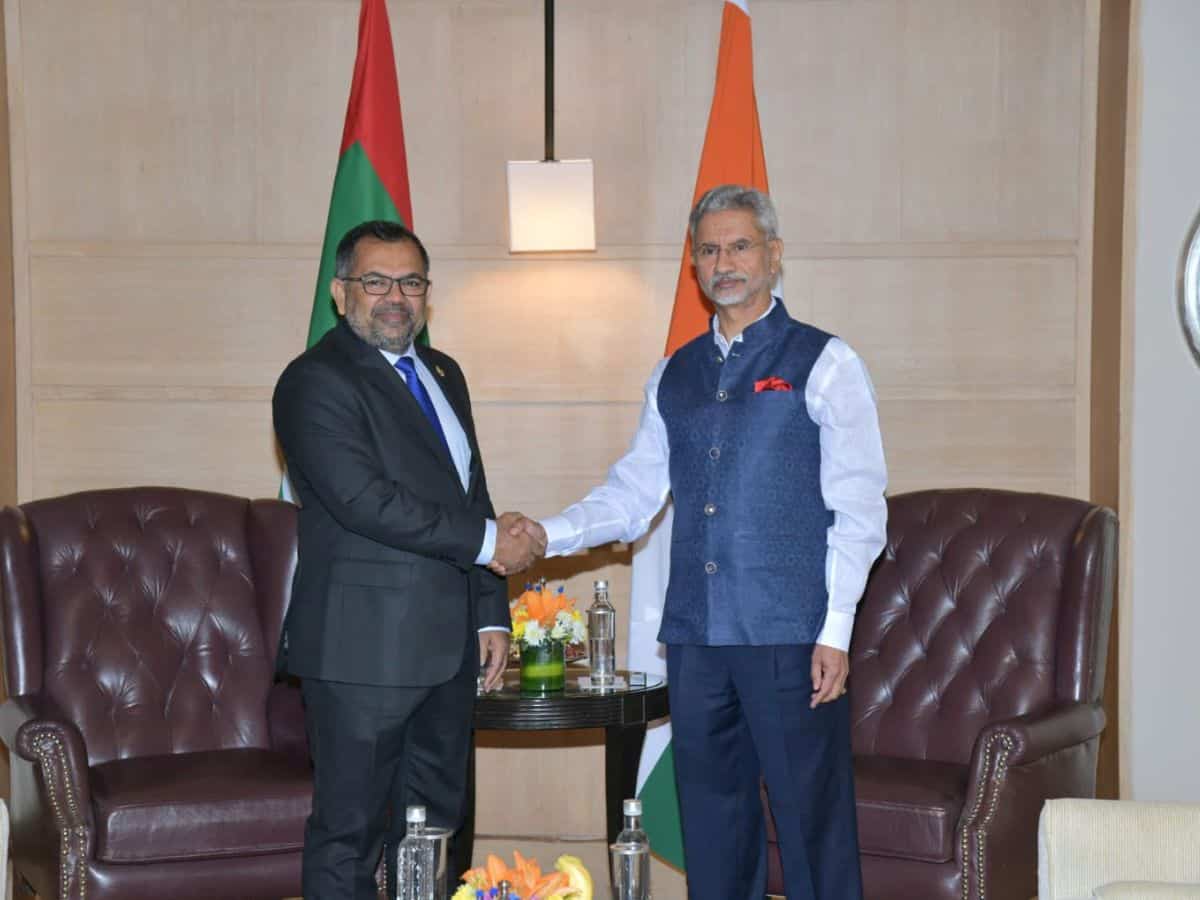
New Delhi: External Affairs Minister S Jaishankar on Thursday conveyed to his Maldivian counterpart Moosa Zameer that the development of India-Maldives ties is based on “mutual interests” and “reciprocal sensitivity”.
Jaishankar’s remarks came amid a downturn in the bilateral ties between the two countries since pro-China president Mohamed Muizzu assumed office six months back.
“As close and proximate neighbours, the development of our ties is obviously based on mutual interests and reciprocal sensitivity,” the external affairs minister said in his opening remarks in his meeting with Zameer here.
“As far as India is concerned, these are articulated in terms of our Neighbourhood First policy and SAGAR (Security and Growth for all in the Region) vision. I hope that our meeting today will enable us to strengthen the convergence of our perspectives in various domains,” Jaishankar said.
The relations between the two countries came under severe strain in view of Muizzu insisting on withdrawal of Indian military personnel operating three military platforms in the island nation.
India has already withdrawn most of its military personnel. Muizzu had set May 10 as the deadline for withdrawal of the Indian military troops from his country.
At a media briefing, External affairs ministry spokesperson Randhir Jaiswal said the first and the second batch of the Indian personnel came back and “now deputation of competent Indian technical personnel has taken place” to operate the three Indian aviation platforms.
In his remarks, Jaishankar also mentioned India’s development assistance to the Maldives.
“India has been a key provider of development assistance to the Maldives. Our projects have benefited the people of your country; contributed to the quality of life,” he said.
“They range from infrastructure projects and social initiatives to medical evacuation and health facilities,” Jaishankar said.
“We have also extended financial support on favourable terms in the past. India has been a First Responder on numerous occasions for Maldives,” he said.
“Our cooperation has also enhanced the security and well-being of your country through shared activities, equipment provisioning, capacity building and training,” Jaishankar added.
Jaiswal said the two foreign ministers had “extensive discussions” on bilateral ties and regional security issues.
The two leaders discussed development partnership, and ongoing capacity building and training initiatives, he said.
On withdrawal of Indian military personnel from the Maldives, Jaiswal said both sides have been working together to ensure continued operation of the Indian aviation platforms that provide humanitarian and medical evacuation services to the people of the island nation.
“Accordingly, deputation of competent Indian technical personnel has taken place,” he said.
The Maldivian foreign ministry said Jaishankar and Zameer discussed all aspects of India-Maldives partnership to forge opportunities for future collaboration.
It said both the ministers expressed commitment to continue working closely together, bilaterally and in international arena, on priority areas of mutual interest.
“Both the ministers acknowledged the fruitful economic partnership and the notable progress of projects facilitated through Indian grant assistance and line of credit initiatives,” the Maldivian foreign ministry said in a statement.
It said Zameer conveyed appreciation for India’s steadfast support in fostering and advancing economic, trade, and investment ties between the two nations, as well as for India’s committed role in the socioeconomic advancement of the Maldives.
“India had renewed quota for Maldives to import essential goods for one year amounting a significant increase compared to previous year,” it said.
“Minister Zameer’s first official visit to India reflects the strong support and commitment between the two countries. It marks a new initiative of collaboration, symbolizing enduring friendship and shared goals,” it added.
